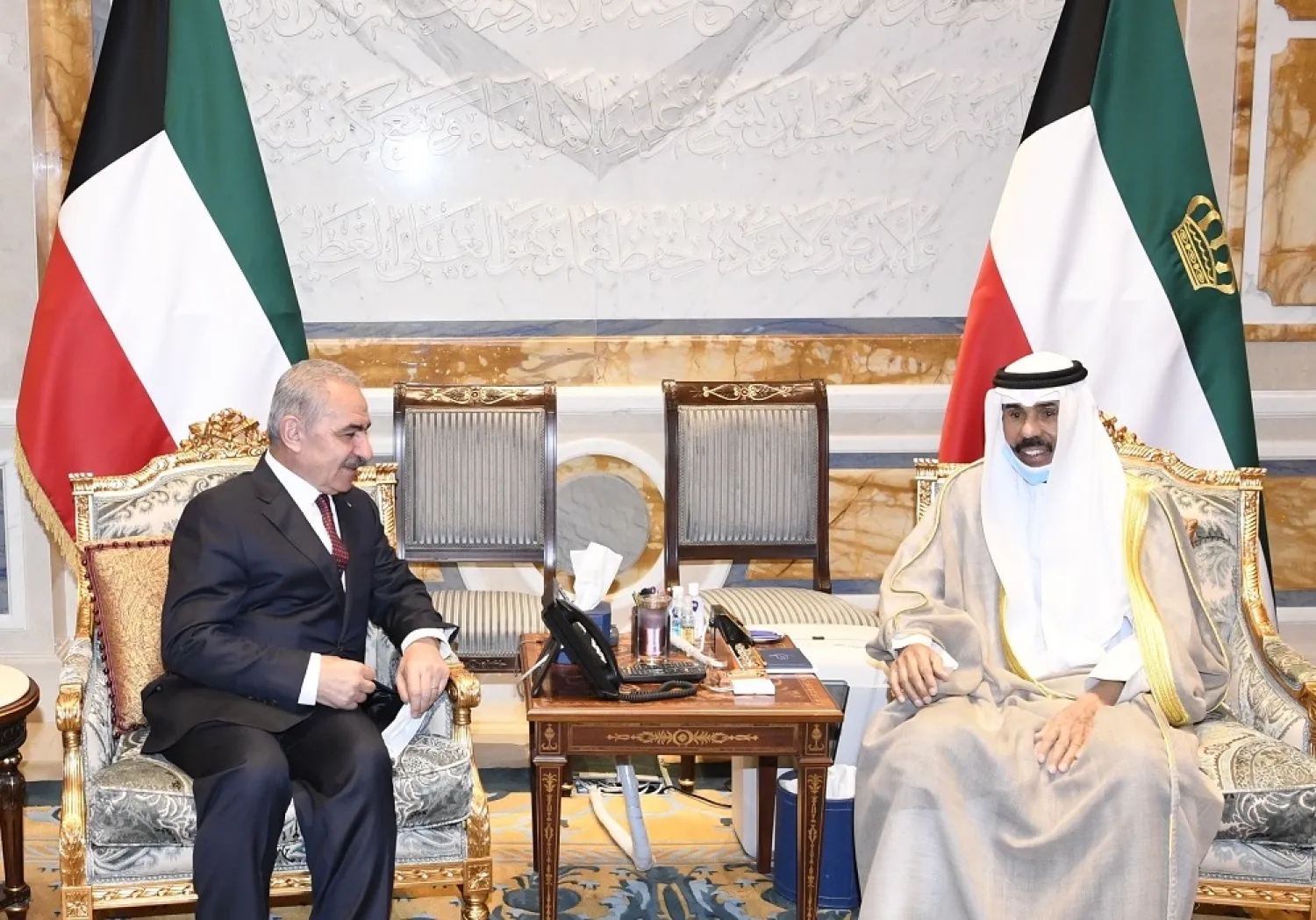Emir of Kuwait, Sheikh Nawaf Ahmad Al-Jaber Al-Sabah stressed on Tuesday that his country remains unwavering in its support to the Palestinian cause.
Sheikh Nawaf received Palestinian Prime Minister Mohammed Shtayyeh in Kuwait who was in the country on a two-day visit as part of an official Gulf tour.
He said Kuwait will continue to stand by the Palestinian people until their national aspirations are achieved and they establish an independent state.
He affirmed that the Palestinian cause was, and still is, the central issue for Kuwait as well as the Arab and Muslim worlds, wishing the Palestinian government and people security and peace.
For his part, Shtayyeh praised Kuwait’s unwavering support to the Palestinian people and their cause, emphasizing the depth of brotherly relations between them.
The PM briefed the Emir on the latest political developments, particularly the ongoing Israeli violations against the Palestinian people, especially in Jerusalem.
Shtayyeh also covered the efforts exerted towards achieving national Palestinian unity, mobilizing international support for Gaza’s reconstruction, creating a political track amid the renewed international momentum to end the Israeli occupation and establish an independent Palestinian state.
Before wrapping up his visit to the country, Shtayyeh met with his Kuwaiti counterpart, Sheikh Sabah Al-Khalid Al-Sabah, and Speaker of the National Assembly Marzouq al-Ghanim.









